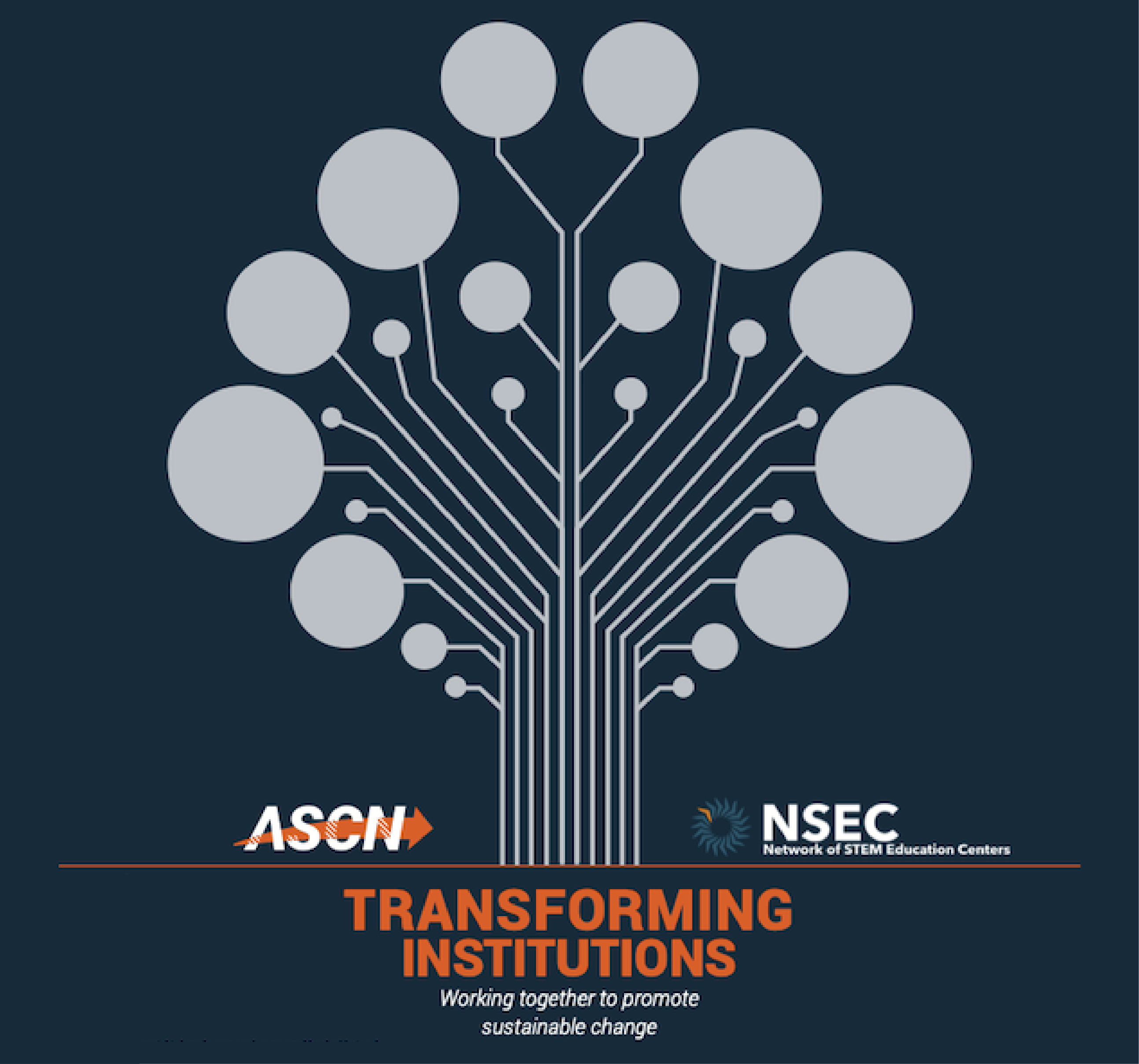2023 Transforming Institutions Conference
Thriving with Change
This meeting happened in June of 2023. For information about the 2025 meeting please visit this page.
June 12-13, 2023 | Minneapolis, MN
The Transforming Institutions 2023 is jointly hosted by the Accelerating Systemic Change Network (ASCN) and APLU's Network of STEM Education Centers (NSEC).
We thank NSF and the Association of Public and Land-grant Universities (APLU) for their support.

Transforming Institutions 2023 Conference Information
Important Dates:
- Registration opens in April
- Early conference registration rate deadline: May 15, 2023
- Registration subsidy request deadline: May 15, 2023
- Poster submission deadline: May 15, 2023
- Hotel registration deadline: May 19, 2023
- Conference begins 8:30am CT, June 12, and concludes at 6pm CT June 13th.

Who is the Transforming Institutions Conference for?
The Transforming Institutions Conference is designed to bring together researchers, faculty, change agents, administrators, center staff and directors, and policymakers to focus on transforming undergraduate education. Participants will have the opportunity to identify critical questions facing institutional change, foster connections with colleagues interested in change, and address important topics related to transforming institutions of higher education.
What happens at the Transforming Institutions Conference?
Events will include presentations, panel discussions, poster sessions, plenaries, thematic symposia, and workshops (more details coming soon). If you're interested in contributing to the Transforming Institutions program, please visit the Call for Proposals page.
Keynote Speaker: Demographics and the Demand for Higher Education
 Nathan Grawe
Nathan Grawe
Professor of economics at Carleton College
Dr. Nathan Grawe's work as a labor economist studies the connections between family background and educational and labor market outcomes. Nathan's 2018 book, Demographics and The Demand for Higher Education (Johns Hopkins University Press) examine show recent demographic shifts are likely to affect demand for higher education and explores how colleges and policymakers may respond to meet institutional and national goals. In a follow-up project, The Agile College (Johns Hopkins University Press, 2021), Nathan draws on interviews with higher education leaders to provide examples of how proactive institutions are grappling with demographic change.
How Higher Education Can Change to Thrive with a Changing Demographic:
Role of Accreditation in Change Making:
Conference Committee:
Andrea Beach, Western Michigan University
Noah Finkelstein, University of Colorado at Boulder
Kadian Callahan, Kennesaw State University
Bradlee Wahid Cotton, SERC, Carleton College
Melissa Haswell, Delta College
Charles Henderson,Western Michigan University
Travis Kibota,Clark College
Sharon Locke, Southern Illinois University Edwardsville
Kacy Redd, APLU
Cailin Huyck Orr, SERC, Carleton College
Gabriela Weaver, University of Massachusetts - Amherst
Casey Wright, Western Michigan University
Host Organizations:
ASCN (opens in a new tab) is a network of individuals and institutions, formed with the goal of more quickly advancing STEM education programs by closing the loop between researchers and change agents. ASCN has received funding from the Helmsley Charitable Trust and NSF IUSE #1726315.
NSEC (opens in a new tab) is a network of 200+ campus-based STEM education centers that serve as catalysts for educational transformation in STEM. NSEC is funded by a NSF IUSE #1524832 and the Association of Public and Land-grant Universities.
This material is based upon work supported by the National Science Foundation under Grant No.s 1726315 & 1524832. Any opinions, findings, and conclusions or recommendations expressed in this material are those of the authors and do not necessarily reflect the views of the National Science Foundation.


![[creative commons]](/images/creativecommons_16.png)




